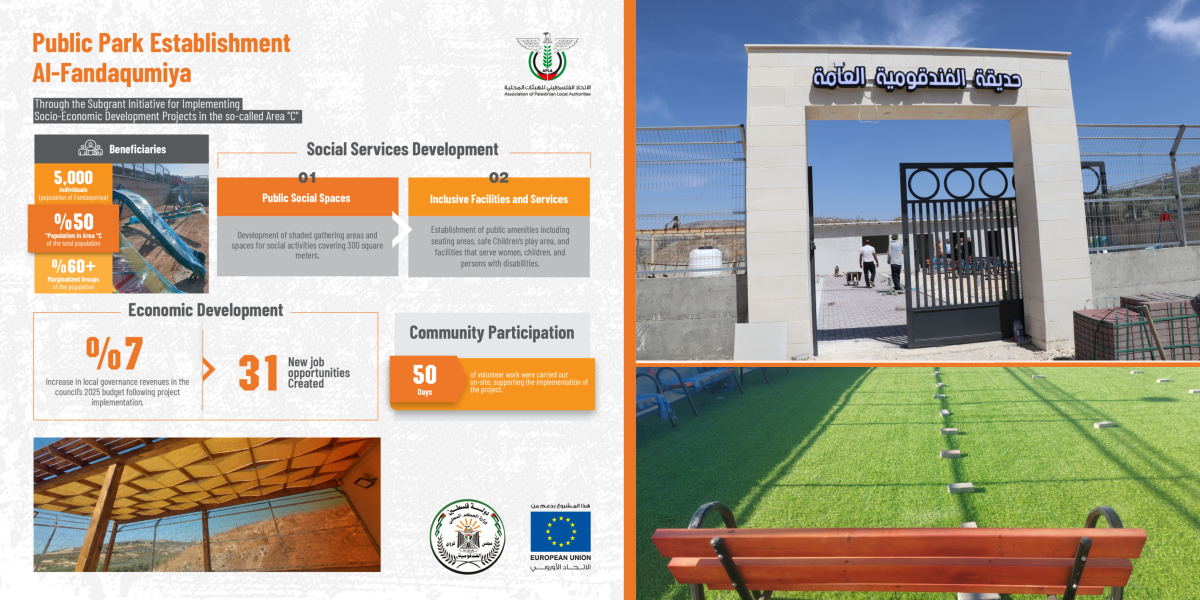Al-Fandaqumiya | Public Park Establishment
South of Jenin, the old Ottoman railway runs alongside Fandaqumiya, its iron tracks carrying the memory of long passages and linking the village to a narrative larger than its immediate borders. Along this historic trace, environmental trails unfold, revealing a natural landscape that calls for pause and reflection. Yet behind this richness of history and geography lies a stark reality: like other villages in Area “C,” Fandaqumiya remains hemmed in by restrictions, denied the right to develop, and stripped of its capacity to plan freely for its future.
It was within this context that the project took shape: thirteen dunums of land transformed into a living communal space, where the social and economic meet. Shaded courtyards were arranged for activities, safe playgrounds were built for children away from the hazards of the streets, seating areas were designed with women in mind, and facilities were created to accommodate all members of society, including persons with disabilities. Alongside these, a modest cafeteria was established—not simply as an added service, but as a space of work and an entry point for those too often excluded from the labor market.
The project did more than alter the physical landscape; it redefined it. On this land, the social intertwined with the economic: thirty-one direct jobs were created, council revenues grew by seven percent, and women were offered spaces to turn household production into a sustainable source of income. With the garden extending toward the environmental trails and the Ottoman railway, it ceased to be a mere local park and became instead a small tourist hub—opening new horizons of investment and development for the village.
The deeper meaning emerged through community participation. Fifty days of voluntary labor were not statistics to be filed away, but proof that true ownership begins when stones are laid and trees are planted by local hands. In this way, the garden became an extension of the community’s awareness and collective memory, not just a project delivered upon completion.
Today, Fandaqumiya presents itself differently: a village that reconnects its Ottoman past with its contemporary reality, and inscribes on its land a public space that resists absence with the insistence of presence. Between its recreational, economic, and touristic roles lies a deeper truth: that development, even in the heart of Area “C,” is an act of daily resilience and a clear message that land, despite restrictions, can be turned into a space of life.


This project is part of the Sub-Grant Program, which is implemented by the Association of Palestinian Local Authorities (APLA) in Area C. The initiatives under this program are not merely about infrastructure improvement, but serve as practical tools to keep communities rooted in their land, expand spaces of life in the face of closure and confiscation, and turn development into a daily act of resilience that safeguards rights, memory, and existence.
funded by: the European Union and the Swiss Agency for Development and Cooperation (SDC)

 Key Indicators
Key Indicators
 Cultural Heritage
Cultural Heritage
 Public Parks
Public Parks
 Renewable Energy
Renewable Energy
